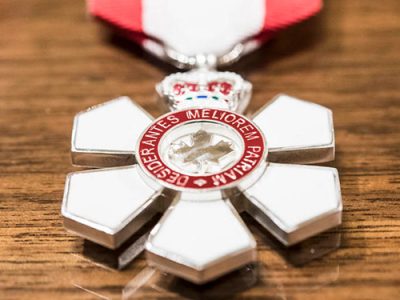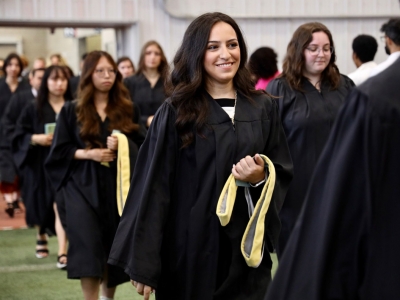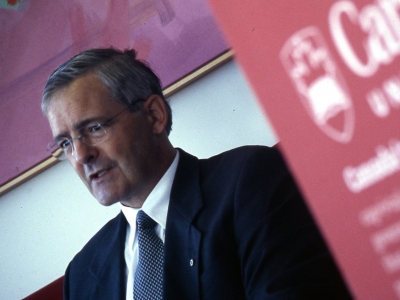Carleton University is one of 11 Canadian universities to receive funding from the new Queen Elizabeth Scholars (QES) Advanced Scholars West Africa program to work together to find solutions to the world’s increasingly complex challenges.
The project is led by Nduka Otiono, a distinguished scholar in Carleton’s Institute of African Studies in collaboration with various African partners. It’s called Wurin ta na yin rubutu, meaning her own room to write.
External project partners include IMPACT-Partnership Africa, CODE, Africa-Canada Chamber of Commerce and Aisha Ibrahim, assistant deputy vice-chancellor of Fourah Bay College at the University of Sierra Leone.
“We are honoured to be the recipient of a second QES Grant and to be able to put into practice what we have learned from our first project that involved scholars in the African countries of Tanzania, Malawi and Ghana,” said Karen Schwartz, Carleton’s associate vice-president (Research and International).
“This project is wholly women-centred because women are disadvantaged in completing the requirements for PhDs and early career advancement due to institutional prejudice and cultural barriers to finding the time and space to work.”
Research from the British Council and German Academic Exchange Service (DAAD) shows low rates of completion of PhDs in sub-Saharan Africa and inequities in terms of gender, as well as limited alignment of engagement with industry, the private sector and societal needs. This project aims to combat these challenges by:
- Forming a governing committee to manage the selected outstanding early career and doctoral women candidates from West Africa to participate in the QES-AS-WA program.
- Adopting an innovative bottom-up approach with scholars reached through social and professional media networks and competitively selected before soliciting institutional engagement with their home universities.
- Hosting 11 short-term and six medium-term scholars over seven semesters from 2021 to 2024 to be determined in consultation with our placement partners.
- Facilitating the co-creation of research proposals between the selected scholars, Carleton facilitators and placement partners to suit the parties’ respective goals.
- Innovatively deploying blended virtual coaching and in-person placement at West African partner offices and research sites starting as soon as fall 2021.
“Women’s triple roles of production, reproduction and community management increase the barriers women confront in building an academic career,” said Otiono. “These burdens have disproportionately increased during the COVID-19 pandemic which, according to the United Nations, might be reversing gender equality gains. By providing often-lacking resources and enabling community stakeholders and facilitators, this project is designed to create intellectual and logistical support, including space and time away from non-research obligations, for West African women on a research development trajectory.”
Two hundred Canadian and West African researchers and advanced scholars will receive funding from the new QES Advanced Scholars West Africa program.
Each of the projects focuses on gender equality and puts particular emphasis on increasing partnerships between Canada and Francophone countries. All scholars will also participate in leadership development and community engagement activities and in the broader network of Queen Elizabeth Scholars.
The QES program was created in 2014 to improve global talent exchange between Canada and other nations. The program aims to develop the next generation of innovative leaders and community builders by providing enriched academic, professional and cross-cultural experiences and by facilitating lasting local and global community engagement.
Media Contact
Steven Reid
Media Relations Officer
Carleton University
613-265-6613
Steven.Reid3@carleton.ca
Follow us on Twitter: www.twitter.com/Cunewsroom
COVID 19 Updates: https://newsroom.carleton.ca/coronavirus-covid-19/messages/
Friday, December 18, 2020 in News Releases
Share: Twitter, Facebook



